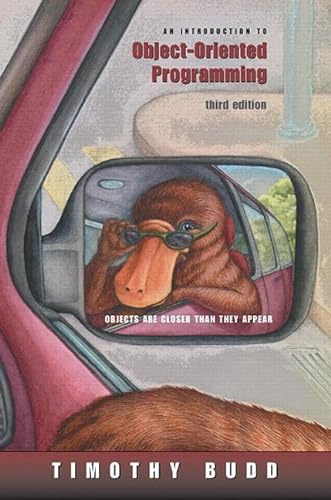In An Introduction to Object-Oriented Programming, Timothy Budd provides a language-independent presentation of object-oriented principles, such as objects, methods, inheritance (including multiple inheritance) and polymorphism. Examples are drawn from several different languages, including (among others) C++, C#, Java, CLOS, Delphi, Eiffel, Objective-C and Smalltalk. By examining many languages, the reader is better able to appreciate the general principles that lie beyond the syntax of the individual languages.
Object-oriented programming is an approach to thinking about computation and problem solving. Timothy Budd lays out the principles of object-oriented programming, illustrating these principles in a language independent manner. You will discover the basic concepts of object-oriented programming as well as the principles of designing by responsibility and encapsulation.
Features - Explains the terminology of object-oriented programming.
- Discusses recent changes and additions to C++, such as templates, name spaces, booleans, strings, run-time typing, and the standard library.
- Presents case studies in the programming language Java, illustrating differences between Java and C++.
- Covers advanced topics such as metaclasses, delegation, design patterns, application frameworks, and techniques used in the implementation of object-oriented languages.
- Includes case studies of object-oriented applications illustrating important ideas and comparing the various features of different languages. Complete source code is provided in the appendices.
0201824191B04062001
